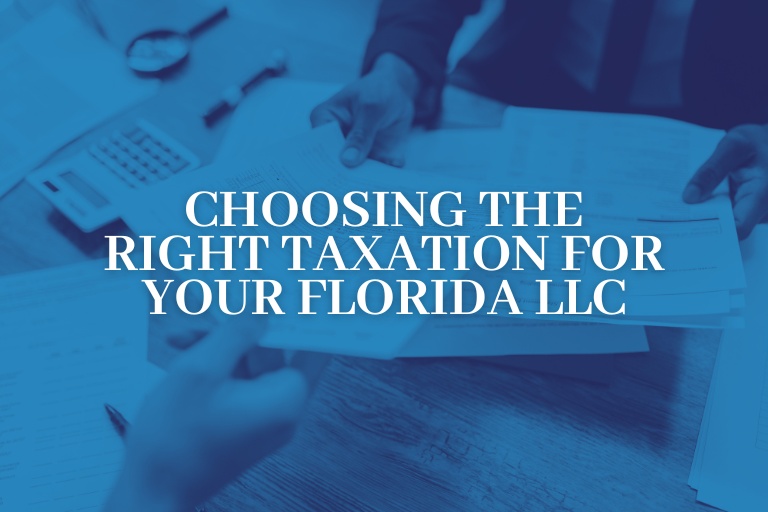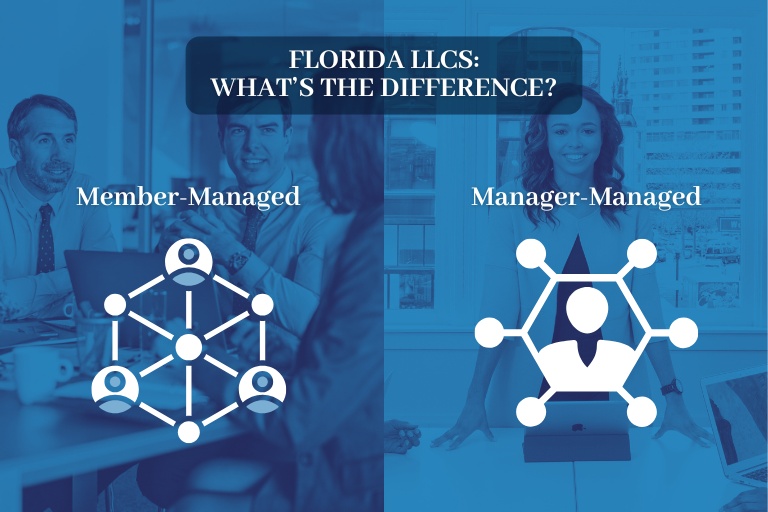From Estate Planning to Business Law, Asset Protection to Real Estate, and Tax Planning to Compliance—your future, safeguarded from every angle.
How to Choose the Right Legal Structure for Your Business

Table of Contents
Choosing the right legal structure for your business is one of the most important decisions you’ll make as an entrepreneur. The type of entity you select will impact everything from your personal liability and tax obligations to your ability to raise capital and grow your company.
As business law attorneys in Miami, we at BFG Law understand how overwhelming this choice can be. In this post, we’ll break down the key factors to consider when selecting a legal structure for your business and provide an overview of the most common entity types.
Factors to Consider When Choosing a Business Structure
Before talking about the different types of business entities, let’s discuss the main factors you should evaluate when deciding which legal structure is right for your company:
- Liability protection: How much personal liability are you comfortable taking on? Some business structures offer more protection for your personal assets than others.
- Tax treatment: The way your business is taxed can vary significantly depending on the entity type you choose. Consider whether you want to be taxed as an individual or as a separate entity.
- Ownership and management: Who will own and manage your business? Some structures are better suited for single owners, while others can accommodate multiple owners and more complex management hierarchies.
- Flexibility and growth potential: As your business grows and evolves, will your chosen legal structure allow for easy changes and adaptations? Some entities are more flexible than others.
- Formalities and paperwork: Different business structures come with varying levels of required formalities and ongoing paperwork. Consider how much administrative work you’re willing to take on.
Keeping these factors in mind, let’s explore the most common types of business entities and their key characteristics.
Sole Proprietorship
A sole proprietorship is the simplest and most common business structure. If you’re operating your business under your own name and haven’t filed any paperwork to create a separate entity, you’re likely a sole proprietor by default.
Pros:
- Easy and inexpensive to set up
- Complete control over business decisions
- Simplified tax filing (report business income and losses on personal tax return)
Cons:
- No personal liability protection (you’re responsible for business debts and lawsuits)
- Difficult to raise capital or build business credit
- Limited ability to sell or transfer ownership
Partnership
A partnership is similar to a sole proprietorship but involves two or more owners. There are two main types of partnerships: general partnerships (where all partners share management duties and liability) and limited partnerships (where some partners have limited involvement and liability).
Pros:
- Easy and inexpensive to form
- Shared management responsibilities and costs
- Pass-through taxation (profits and losses flow through to partners’ personal tax returns)
Cons:
- No personal liability protection for general partners
- Potential for conflicts between partners
- Limited ability to transfer ownership
Limited Liability Company (LLC)
An LLC is a popular choice for small businesses because it combines the flexibility and pass-through taxation of a partnership with the personal liability protection of a corporation.
In Florida, LLCs are governed by Chapter 605 of the state statutes, known as the Revised Limited Liability Company Act.
Pros:
- Personal liability protection for members
- Flexible management structure and ownership options
- Pass-through taxation (or option to be taxed as a corporation)
- Less formal and less expensive than a corporation
Cons:
- More complex to set up and maintain than a sole proprietorship or partnership
- Self-employment taxes apply to members’ share of profits
- Difficult to transfer ownership
Corporation
A corporation is a separate legal entity owned by shareholders and managed by a board of directors. There are two main types of corporations: C-corps (which are subject to double taxation) and S-corps (which offer pass-through taxation). In Florida, corporations are governed by Chapter 607 of the state statutes, known as the Florida Business Corporation Act.
Pros:
- Personal liability protection for shareholders
- Ability to issue stock and raise capital
- Perpetual existence (not tied to lifespan of owners)
- Potential tax advantages and employee benefits
Cons:
- More expensive and complex to set up and maintain
- Double taxation for C-corps (corporate income taxed at entity level and dividends taxed at shareholder level)
- Extensive record-keeping and reporting requirements
Choosing the Right Business Entity with BFG Law
Selecting the right legal structure for your business is a critical decision that can have far-reaching implications for your personal liability, taxes, and growth potential.
At BFG Law, our business attorneys can help you evaluate your options and choose the entity type that best aligns with your goals and needs. We’ll guide you through the formation process, ensure compliance with Florida’s legal requirements, and provide ongoing support as your business grows and evolves.
Don’t leave this important decision to chance. Contact BFG Law today to schedule a consultation and take the first step toward protecting your business and personal assets. With our knowledge of Florida’s business laws and our commitment to personalized service, we’ll help you build a strong foundation for your company’s success.










